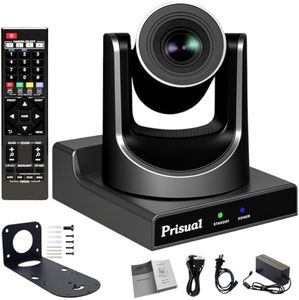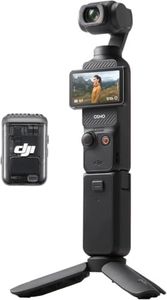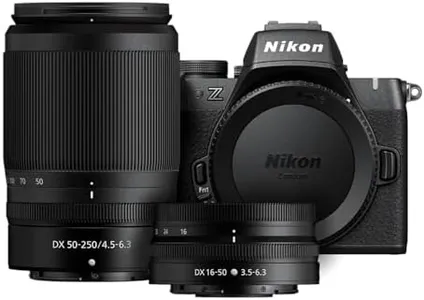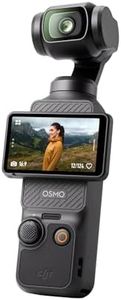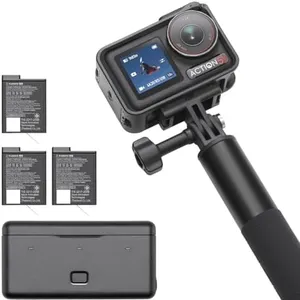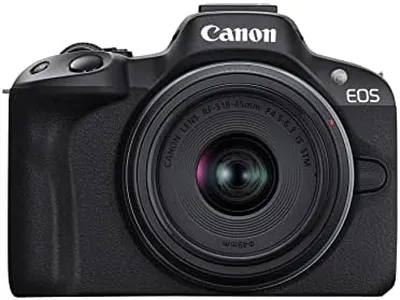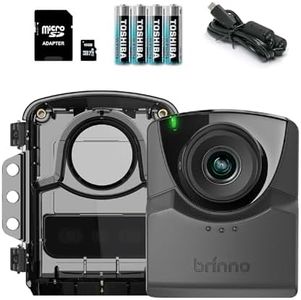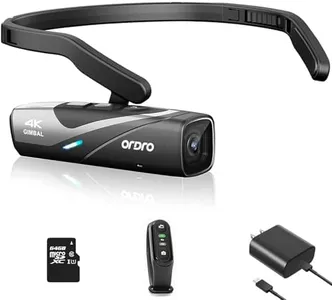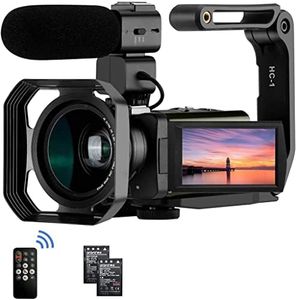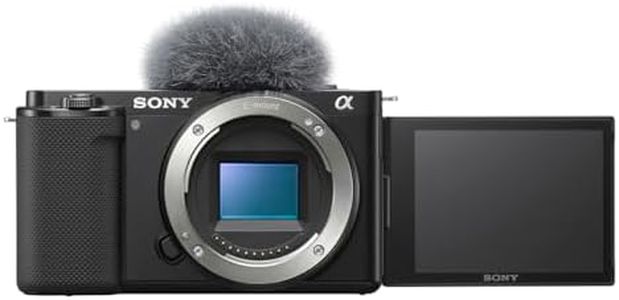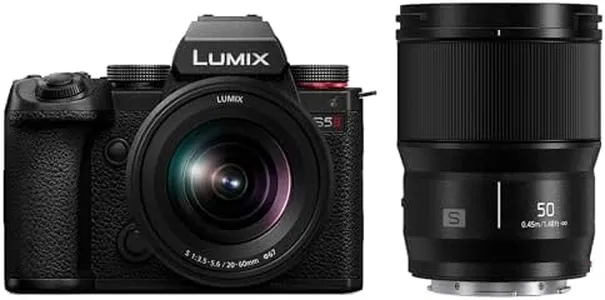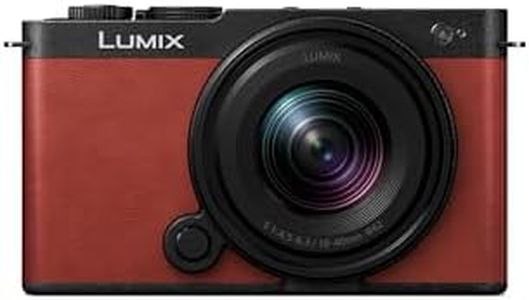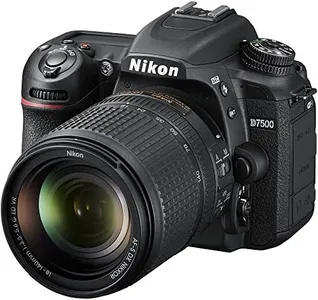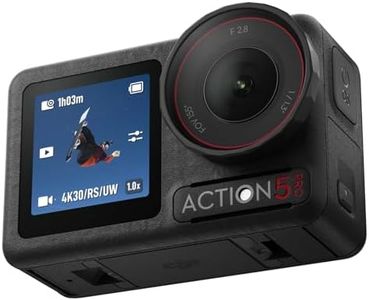10 Best Vlogging Cameras 2026 in the United States
Our technology thoroughly searches through the online shopping world, reviewing hundreds of sites. We then process and analyze this information, updating in real-time to bring you the latest top-rated products. This way, you always get the best and most current options available.

Our Top Picks
Winner
DJI Osmo Pocket 3 Creator Combo, 1'' CMOS, 4K Resolution/120fps Vlog Camera, 3-Axis Stabilization, Face/Object Tracking, Mic Included for Clear Sound, Digital Camera for YouTube
Most important from
5500 reviews
The DJI Osmo Pocket 3 Creator Combo is a highly capable vlogging camera that shines in several important areas. Its 1-inch CMOS sensor and 4K resolution at up to 120fps let you capture ultra-clear and smooth videos, which is great for both fast action and beautiful scenery like sunsets. The camera’s autofocus is fast and accurate, keeping your subject sharp whether you’re moving around or stationary. Its 3-axis mechanical stabilization is excellent for steady footage, reducing shakiness even when you’re on the go or doing active shots.
For audio, the included DJI Mic 2 transmitter significantly improves sound quality, making your recordings clearer and more professional. The 2-inch touch screen that rotates supports easy framing of shots in both horizontal and vertical formats, which is handy for different social media platforms. The camera is very compact and lightweight, perfect for carrying on trips or daily vlogging without hassle. It also has Bluetooth and Wi-Fi for convenient connectivity and sharing.
This camera suits vloggers who want high-quality video and sound in a small, easy-to-use package, especially those focused on social media content creation and travel vlogging.
Most important from
5500 reviews
Nikon Z50 II with Two Lenses | Compact mirrorless Stills/Video Camera with Easy Color presets and Wireless Photo Sharing | USA Model
Most important from
115 reviews
The Nikon Z50 II is a compact mirrorless camera that caters well to vloggers. It boasts a 20.9-megapixel APS-C sensor, ensuring high-resolution images and videos. The camera's 4K UHD/60p video capability and 120p slow-motion in Full HD provide excellent frame rate options for high-quality video production. Its autofocus system is robust, accurately tracking nine distinct subjects, including specific modes for birds and airplanes, making it versatile for different shooting scenarios.
Additionally, the optical image stabilization helps maintain smooth and steady footage, which is crucial for vlogging on the move. Audio recording is handled by a built-in stereo microphone, but users may need an external mic for enhanced audio quality. The camera is lightweight and portable, fitting easily into a small bag, which increases its appeal for travel vloggers. Its battery life is decent, though heavy users might want to carry a spare battery. Connectivity options are strong, with Bluetooth, Wi-Fi, USB, and HDMI available, allowing for seamless photo and video sharing via the Nikon SnapBridge app.
The camera comes with two versatile lenses – a 16-50mm f/3.5-6.3 VR and a 50-250mm f/4.5-6.3 VR, both featuring image stabilization. However, it's worth noting that the camera does not include a remote, and it is not water-resistant. The Nikon Z50 II is an excellent choice for beginner to intermediate vloggers looking for a capable and portable camera with a variety of creative features.
Most important from
115 reviews
DJI Osmo Pocket 3, Vlogging Cameras with 1'' CMOS & 4K/120fps Vlog Camera, 3-Axis Stabilization, Fast Focusing, Face/Object Tracking, Digital Vlogging Camera for YouTube
Most important from
2689 reviews
The DJI Osmo Pocket 3 is a compact and powerful vlogging camera that stands out for its 1-inch CMOS sensor and the ability to shoot 4K video at up to 120 frames per second. This allows for capturing sharp, smooth footage, even for fast-moving scenes or slow-motion effects. Its 3-axis mechanical stabilization helps keep videos steady, which is ideal for active recording like walking or dancing. The autofocus operates quickly and accurately, featuring face and object tracking to maintain focus seamlessly.
The built-in 2-inch touchscreen is convenient and flips for both horizontal and vertical shots, simplifying video framing. Audio quality benefits from stereo recording and compatibility with DJI wireless microphones for clearer sound, important for vlogs and interviews. Portability is a key advantage since it fits easily in your pocket and weighs just over 6 ounces, making it suitable for travel or daily use. The device supports Bluetooth and Wi-Fi for fast file transfers and remote control.
Battery life supports extended use when paired with the appropriate charger, which is sold separately. While it is beginner-friendly, users seeking longer battery life or interchangeable lenses might consider other options. For those wanting a high-quality, easy-to-use camera that captures stunning 4K video with smooth stabilization and reliable autofocus, the Osmo Pocket 3 represents a strong choice.
Most important from
2689 reviews
Buying Guide for the Best Vlogging Cameras
Choosing the right vlogging camera can significantly enhance the quality of your content and make your vlogging experience more enjoyable. When selecting a vlogging camera, it's important to consider various specifications that will impact the video quality, ease of use, and overall performance. Understanding these key specs will help you make an informed decision and find the best fit for your needs.FAQ
Most Popular Categories Right Now
